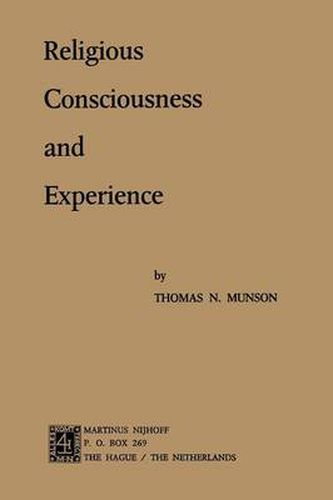Readings Newsletter
Become a Readings Member to make your shopping experience even easier.
Sign in or sign up for free!
You’re not far away from qualifying for FREE standard shipping within Australia
You’ve qualified for FREE standard shipping within Australia
The cart is loading…






This title is printed to order. This book may have been self-published. If so, we cannot guarantee the quality of the content. In the main most books will have gone through the editing process however some may not. We therefore suggest that you be aware of this before ordering this book. If in doubt check either the author or publisher’s details as we are unable to accept any returns unless they are faulty. Please contact us if you have any questions.
It is one of the ironies of our times that, as the practise of religion wanes, a theoretical interest in it on the part of many anthropologists, psychologists, sociologists and philosophers waxes. Among these, only philosophers bring to their task a long history of theological and reli gious relations. Hence their renewed interest has been hailed as a break down of isolationism, heralding, perhaps, a new era of interdisciplinary peace. To celebrate this new ecumenism, a Chicago seminary, consis tently with its purpose, sponsored a colloquium to explore the future of philosophical theology. If some of its participating professional philosophers initially felt a twinge of embarrassment over their presence at an ostensibly theological meeting, they soon were at ease. No one was called upon to define the topic, or even to suggest its relationship to a philosophy of religion. Conveniently, everyone could role up his sleeves and get to work on a job he personally felt needed doing. Can we wonder that the lay observer appeared somewhat confused? Was the purpose to analyze God talk, or to find a place for ‘God’ in a metaphysical scheme? Or if not these, something else? It soon became evident that the participants in the colloquium ranged from the free swinger to the severely inhibited, depending upon the role each assigned to dogma and creed.
$9.00 standard shipping within Australia
FREE standard shipping within Australia for orders over $100.00
Express & International shipping calculated at checkout
This title is printed to order. This book may have been self-published. If so, we cannot guarantee the quality of the content. In the main most books will have gone through the editing process however some may not. We therefore suggest that you be aware of this before ordering this book. If in doubt check either the author or publisher’s details as we are unable to accept any returns unless they are faulty. Please contact us if you have any questions.
It is one of the ironies of our times that, as the practise of religion wanes, a theoretical interest in it on the part of many anthropologists, psychologists, sociologists and philosophers waxes. Among these, only philosophers bring to their task a long history of theological and reli gious relations. Hence their renewed interest has been hailed as a break down of isolationism, heralding, perhaps, a new era of interdisciplinary peace. To celebrate this new ecumenism, a Chicago seminary, consis tently with its purpose, sponsored a colloquium to explore the future of philosophical theology. If some of its participating professional philosophers initially felt a twinge of embarrassment over their presence at an ostensibly theological meeting, they soon were at ease. No one was called upon to define the topic, or even to suggest its relationship to a philosophy of religion. Conveniently, everyone could role up his sleeves and get to work on a job he personally felt needed doing. Can we wonder that the lay observer appeared somewhat confused? Was the purpose to analyze God talk, or to find a place for ‘God’ in a metaphysical scheme? Or if not these, something else? It soon became evident that the participants in the colloquium ranged from the free swinger to the severely inhibited, depending upon the role each assigned to dogma and creed.